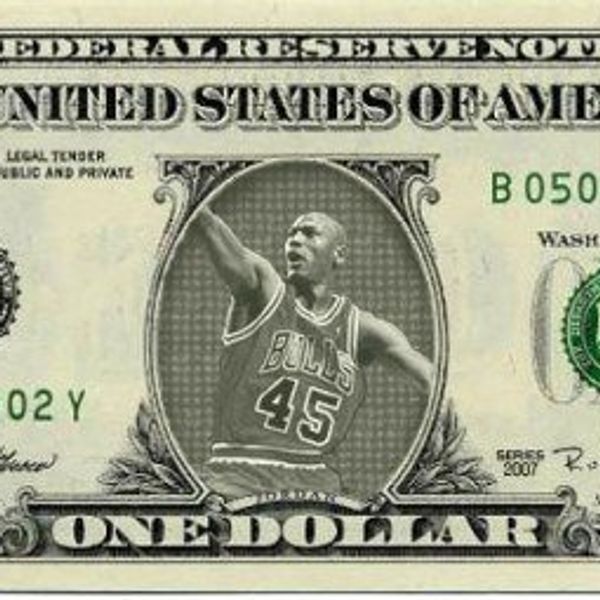“How about athletes get together every few years and compete to see who’s the best? Leave your billion dollar business at home.”
That was a comment (from an anonymous reader) on a recent Yahoo finance article titled, “Bizarre rule allows Michael Phelps to market his brand while other Olympians can’t.”
A few other comments echoed in this nostalgic take – let’s go back to the days when professionals were exempt from the Olympic games.
In 1988, the International Olympic Committee (IOC) granted professional athletes the ability to play in three sports (tennis, ice hockey and soccer). Prior to that, the IOC abided by an amateur code that forbade any compensated athlete to compete, even if they received money from a sport different from that of their Olympic career.
Sounds like the IOC tainted the Olympics by letting money-hungry athletes into the games, right?
Well, that’s where I beg to differ.
The fact of the matter is, most professional-athlete Olympians are not living the lavish lifestyles that these nostalgic commenters make them out to be. Olympians will take advantage of their brief international spotlight by securing sponsorships, or keeping their current sponsorships alive, to help them stay afloat financially. Otherwise, athletes pursue part-time work, stipends and grants to help them get by in the four years prior and after games, and this can often be in addition to sponsorships.
Take Boris Berian for example. Berian is an Olympic American middle-distance runner who worked at McDonald’s while training for the games. Or two-time Olympic javelin thrower Cyrus Hostetler, who told the Washington Post that one year he made $3,000 after expenses. Or what about the team of refugees at this year’s games? Something’s telling me they are not residing in mansions after Rio when they return, well, where?
Sure, there is something to be said about amateurs rising above the adversity of everyday life, without monetary incentive and pushing themselves to the limits to take to the international stage. But in many cases, post-1988 Olympians continue to do just that. Moreover, there is something to be said about living a decent life, regardless of your athletic feats. According to the Track and Field Athlete Association, 50 percent of track and field athletes who ranked in the top 10 make less than $15,000 per year, which flirts with the United States’ poverty line for a single homeowner.
In Rio this year, 28 sports are held in contention. Not all of these are basketball or golf. Instead, most are low-profile events. Outside of medaling at the Olympics, many athletes will not see considerable financial success thanks to their sport and will return home to their part-time jobs, slaving over the next four years at a chance to do it all over again.
So where does this idea of a billion-dollar business come from? Well, the money is surely there. Whether it goes to the athletes or not is another story.
Yes, allowing professional athletes to enter the games may have tainted a bit of its purity. These athletes are sponsored by someone, and these companies want in on the biggest international event, naturally. As a result, more leverage is given to committees like the IOC who hold the deciding power on who gets what coverage, access and when. The money-hungry attitude is alive and well in the Olympics, but I strongly believe it resides within multinational committees and companies. Not with athletes.
Now, many athletes have been fighting back on Rule 40. What is that you ask? As this video describes, Rule 40 prohibits non-official sponsors (ex. athletes, trainers, coaches) from advertising themselves or captializng on their image in any way, including social media. So for instance, if I am an Under Armour athlete, there is dark period (July 27 – August 24) in which I cannot mention Under Armour in any of my tweets, thank them for their support on Facebook, or pose with their new product on Instagram. Likewise, if I am Under Armour, I cannot even use my athlete’s name within the same posting that includes certain “Olympic phrases” such as Olympian, gold, Rio, summer. Many athletes and sponsors are finding their way around this rule by using generic phrases such as #TheBigEvent or #BoulevardtoBrazil.
This rule was created to protect official Olympic sponsors (ex. Coca Cola, McDonald’s) and ensure that their investments in the games is not interrupted. But the backlash from Rule 40 is resounding because these are companies that often do not directly support Olympic athletes.
So, was the IOC wrong in letting in professional athletes? We are decades out from this decision, yet its implications get murkier. While I stand by my belief that pro athletes are not the sole blame for Olympic corruption, without them there would not be as heavy involvement of sponsors and committees. Airtime would be less precious if only “no-name” competitors were on screen.
Yet, our age is much different than that of amateur Olympic time. Even pee-wee soccer leagues technically have sponsors from local businesses to support their games. So, while amateur Olympians could provide a symbol of what some consider “pure sport,” there is absolutely no way it would not be served on a commercialized platter. The fact of the matter is, everything is. So while we are in a commercial age, why not use these moments to benefit our athletes?
I believe another commentor on the Yahoo article said it best, “I believe regulating what athletes can put on their uniforms is important. The last thing we want is them to look like a NASCAR race car. But banning them form saying anything, or their sponsor from tweeting a congrats, that's over the top.”
After all, these individuals put themselves through the wringer for years on end. For what? For pride and glory that may or may not come with a medal or money. And, so we can sit here on the couch and say “Yea,h they don’t love it, they’re just in it for the money.” Yes, all $15,000 (or $3,000!) a year.





















